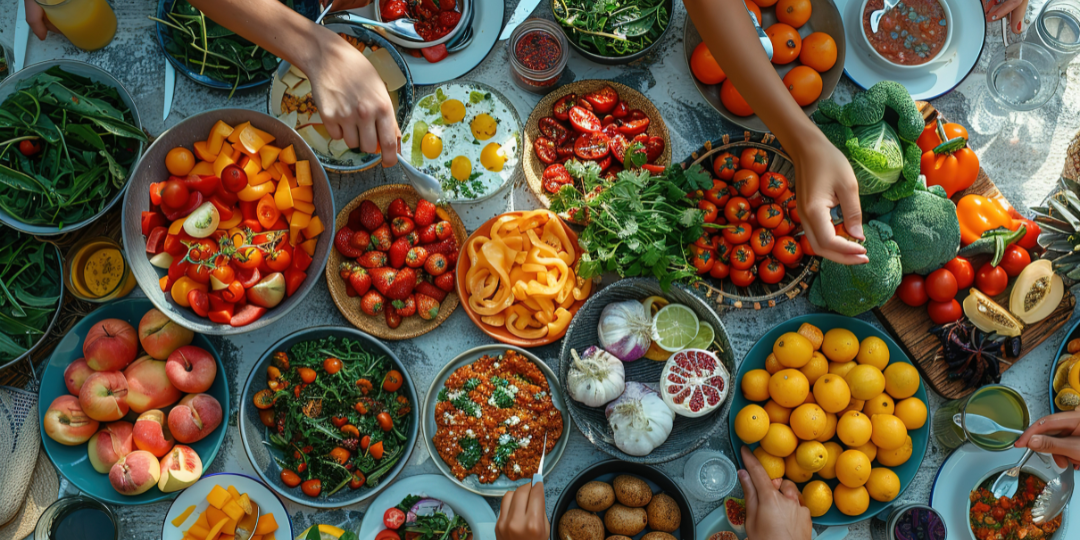Battleground For Our Health - The Supermarket

Not long ago the key to healthy eating was simple: stick to the perimeter for fresh produce and meats, avoiding the processed foods in the center aisles. Not anymore.

The supermarket landscape has undergone a dramatic transformation in the past few decades However, ever since the introduction of genetically modified (GM) crops in 1992 and plant-based meat alternatives has blurred these lines. Roundup Ready crops, engineered to withstand glyphosate-based herbicides, have become pervasive in our food supply. Even organic produce isn't immune to contamination. A 2014 USDA study found glyphosate residues in 59% of honey samples.
The reach of GM ingredients extends far beyond obvious sources, with genetically engineered soy protein now found in products ranging from ice cream to veggie burgers.
Increase crop yields - but at what cost?
Roundup Ready crops were introduced to increase crop yields by allowing farmers to use glyphosate herbicides without harming the plants. However, this has led to increased glyphosate residues in our food supply, raising health concerns. Studies have linked glyphosate exposure to various health issues, including Non-Hodgins Lymphoma, liver disease, and endocrine disruption.
The widespread use of glyphosate has also impacted soil health and biodiversity, affecting the nutritional content of our food. When comparing plant-based meat alternatives to grass-fed beef, significant nutritional differences emerge. Grass-fed beef typically has an omega-6 to omega-3 ratio of 3:1 or less, which is considered ideal for human health. In contrast, some plant-based alternatives, such as Impossible Burger use sunflower oil as their fat source. Sunflower oil is highly inflammatory, leading to inflammation in the body. Inflammation has been linked to many diseases, from autoimmune conditions to cardiac disease and others..
Global Bans and Regulations:
The controversy surrounding GM foods has led many countries to implement bans or strict regulations. In Europe, 16 countries, including France, Germany, and Italy, have banned GM crop cultivation. These bans often extend beyond crops to include food additives and colorings that are still permitted in the United States. For example, food dyes like Red 40 and Yellow 6, common in American products, require warning labels in many European countries due to potential health risks, especially for children.
To navigate this complex food landscape
- The Environmental Working Group (EWG)The EWG provides consumer guides on various products, helping individuals make informed choices about their food and personal care items. Each year they put out a list of the “Dirty Dozen’, a list of the most contaminated fruits and vegetables, and “The Clean 15” list of fruits and vegetables tested to have the least amount of herbicides and other contaminants.
- Food Babe, a wealth of information on our food supply and activism
Ancient foods meet high-tech
As our supermarkets become battlegrounds for nutrition and food safety, modern technology offers a solution. Freeze-dried foods, such as the Origin series Freeze-dried Bison organs can preserve freshness and nutrition while avoiding many of the risks associated with conventional food production methods.


Written By Brooke Lounsbury














